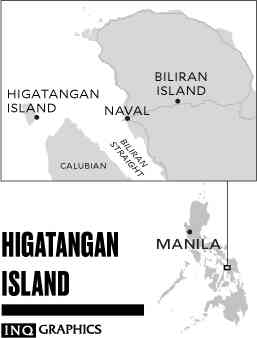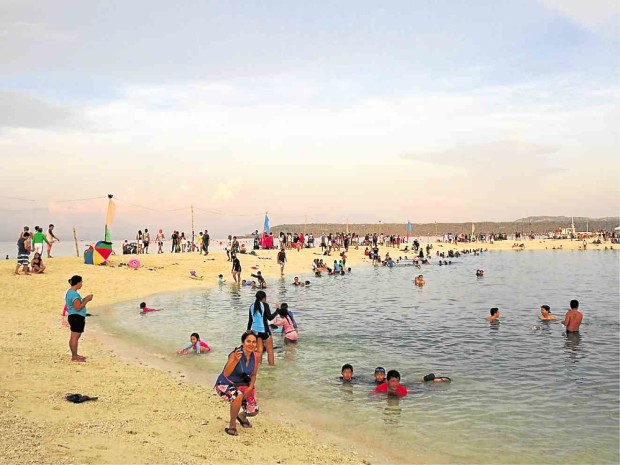Isle of shifting sandbars revisited
NAVAL, BILIRAN—Higatangan, an island known for its shifting sandbars, had been a popular tourist destination off this town in the 1980s. But it somehow lost its appeal following the change of government brought about by the Edsa “people power” uprising that toppled the Marcos regime.
Political turmoil had little to do with the diminished promotional efforts, however, except for one story shared by islanders to this day that the late dictator, Ferdinand Marcos, once sought refuge there from Japanese soldiers on sea patrol during World War II.
Three decades later, the municipality of Naval is embarking on a renewed attempt to make Higatangan one of Eastern Visayas’ top tourist spots.
“The long stretch sandbar is incomparable,” says Jun Tingson, a fashion designer who put up the first Higatangan Summer Festival on April 30 and May 1.
The 200-meter sandbar shifts to the left during the summer months or “amihan” (northeast monsoon) and to the right during the rainy months or “habagat” (southeast monsoon).

The island has a lagoon, a lighthouse and caves near the shoreline and in the forest.
Higatangan, whose name is derived from “atangan” (waiting), is separated from the main Biliran Island by a narrow channel in the northwest tip of Leyte province. For P1,000, tourists can rent a boat to take around the island and explore its clear waters, coral reefs and rock formations while watching seagulls and flying fish.
Tingson, who comes from Maasin City in Southern Leyte province, recalled that the island looked like Boracay during the recent summer festival as people swamped the beach. Several activities were lined up, including a kayak competition, kite flying, boat race, body-building, mat weaving, beach volleyball and an on-shore concert.
“The festival is a litmus test for our tourism and investment promotion in the town. I am more happy and overwhelmed by the turnout of people in the island,” Mayor Gerard Espina said. “At least 4,000, many of them first-time visitors, came.”
While camping is encouraged, the local government introduced a community program for homestay, charging P150 per person. Entrance and environmental fees are P20 each.
“We want to have a vibrant tourism industry in the town and for more investors to come to generate more employment for the locals,” the mayor said.
Next year, the mayor plans to hold kite flying contests, and “bankarera” (boat race) to sustain renewed interest on the island. —WITH A REPORT FROM ROBERT DEJON
